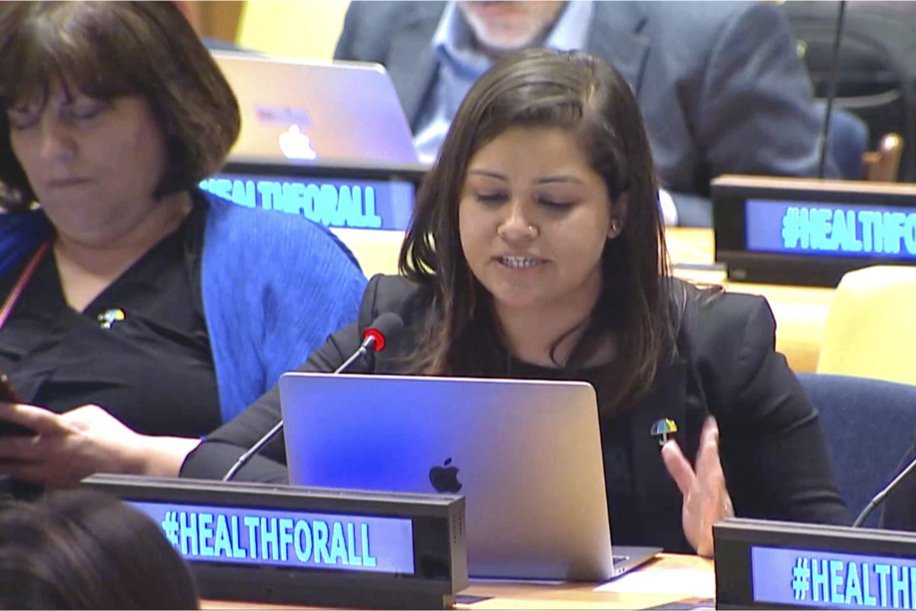Apoorva Gomber Delivers Impassioned Plea at UN Hearing
Dr. Apoorva Gomber presented a statement from the Network at the UN headquarters during a multi-stakeholder hearing on universal health coverage.
“Where a child lives should not determine whether a child lives,” declared Dr. Apoorva Gomber, associate advocacy director for the NCDI Poverty Network. “And yet children with type 1 diabetes in rural areas of sub-Saharan Africa often die within a year of diagnosis. This reality is morally unconscionable.”
Dr. Gomber delivered those statements at the Multi-Stakeholder Hearing on Universal Health Coverage, held on May 9 in the United Nations Headquarters in New York City. Selected organizations were allowed to deliver two-minute testimonies during an afternoon session; Dr. Gomber represented the NCDI Poverty Network in her testimony.
A physician trained in global health centered around type 1 diabetes, health equity, and disease epidemiology, Dr. Gomber also serves as associate advocacy director for the network’s Boston co-secretariat, the Center for Integration Science in Global Health Equity at Brigham and Women’s Hospital. As a long-time advocate for the treatment of type 1 diabetes, Dr. Gomber also works toward overcoming both health inequities in diabetes care globally and the stigmatization of people with diabetes.
“It’s past time that we form a global movement to better serve people doubly afflicted by NCDs and extreme poverty,” Dr. Gomber said, in concluding her United Nations testimony. “The international community can make the fight against disease more equitable and just through leadership, policies, and funding that prioritize NCDs within universal health coverage.”
Dr. Apoorva Gomber (left), associate advocacy director for the Network, attended the multi-stakeholder hearing on universal health coverage with Katie Player, the Network’s membership and engagement manager.


